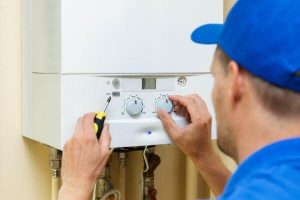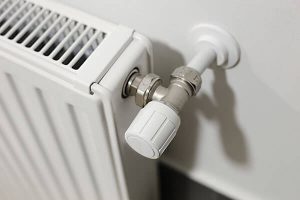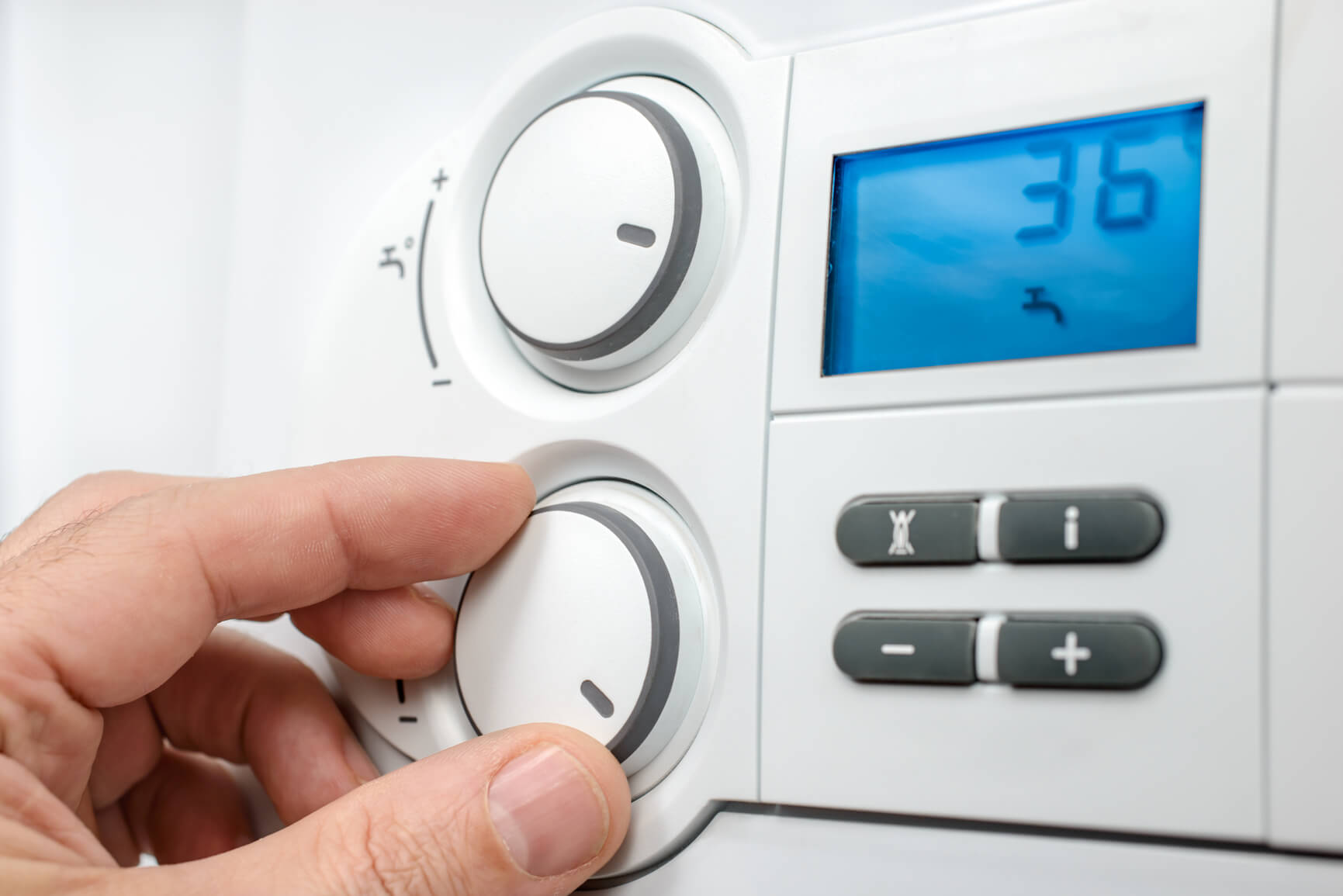In order to keep your home warm and comfortable, a reliable and efficient central heating system is essential. To achieve this, you will want a professional central heating engineer who can do the job right. However, with the many plumbing experts out there, it can be hard to know which one is suited for the task. Given the significant investment you’re going to make and the importance of a central heating system, you’ll want to ensure you pick the best. In this read, we are going to look at some of the important things to consider when choosing a heating engineer.
Contents
- 1 Key Takeaways
- 2 Adequate Experience Is Essential
- 3 Check Their Qualifications & Accreditation
- 4 Ensure The Contractor is Gas Safe Registered
- 5 Go Through Their Reviews
- 6 Ensure They are Insured
- 7 Ask Questions
- 8 Case Study: Efficient Heating Solutions for a Historic Home
- 9 Expert Insights About Choosing the Best Central Heating Engineer
- 10 Heat Pump Source: Reliable Heating and Cooling Solutions
- 11 Conclusion
Key Takeaways
- Choosing a central heating engineer requires ensuring they have adequate experience, especially relevant to your project, and verifying their past work and client feedback.
- It’s essential to check the heating engineer’s qualifications, accreditations, and memberships, emphasising their Gas Safe registration if the project involves gas.
- Before hiring, it’s crucial to review client feedback, ensure the engineer is insured, and engage in a Q&A session to gauge their expertise and customer service skills.
Adequate Experience Is Essential
First and foremost, ensure you pick a heating engineer with adequate experience in your type of project. For example, if it is a boiler breakdown, look for a person with experience in boiler repair and not just gas fitting. Even though the individual is a gas engineer, they might have focused on installation and may not have a clue when it comes to repairing a boiler.
Once you’ve found a heating engineer with the right experience, ask for photos of their past work, particularly if it is going to be a big project. Also, try to speak to at least two of their past clients. This will help you know what it is like to have them in your home and also the standard of their workmanship.

Check Their Qualifications & Accreditation
If a central heating engineer has a City and Guilds qualification in Plumbing & Domestic Heating, this is a sign that they take their profession seriously. However, since central heating jobs often involves solving unexpected problems as well as learning on the job, ensure you pick one with several years of experience.
It is ideally wise to ask whether the heating engineer is a member of any association. This might give you additional protection as a customer, depending on the membership. For example, if you picked a tradesman who’s a member of the Association of Plumbing & Heating Contractors, you get the benefit of another member trades person to complete the project if they go out of business midway.
Ensure The Contractor is Gas Safe Registered
If your project involves gas, the engineer who works on it needs to be on the Gas Safe register. This is an official list of heating and gas engineers who are registered to safely work on cookers, boilers, fires, other heating appliances.
A heating engineer on the list should carry a Gas Safe Identification card. Ask to see this ID when they arrive and do not be afraid to write down the license number so that you can verify it online afterwards.
You may come across a central heating engineer who’s not Gas Safe registered. This is usually the case when they have chosen, for instance, to only take on projects that don’t involve gas. However, this is very rare as numerous heating projects involve gas to some extent.
Go Through Their Reviews
When picking a central heating engineer, you’ll want to ensure they are trustworthy, reliable and able to complete the project to a high standard. One of the best ways to ascertain this is by reading reviews from their past clients. If they get a lot of positive feedback, it may be a good indication that your job will be done to a high standard. However, take these reviews with a grain of salt as some contractors have a reputation for faking reviews. Also, ensure you take a look at reviews on social media platforms as they tend to be more honest.

Ensure They are Insured
Just as important as ensuring that the heating engineer has all the right qualifications is checking whether they are insured. The last thing you want is to hire a heating or gas engineer who does not have public liability insurance. This type of insurance protects you just in case injury or property damage happens when they are working in your premises.
Ask Questions
Asking the heating engineer questions when it comes to providing a quote will help you get a better understanding of the work and also give you a sense of their experience as well as client service skills.
A reputable central heating engineer will be willing and able to answer any questions you may have regarding the project and even give you some advice for maintaining your central heating system.
Case Study: Efficient Heating Solutions for a Historic Home
Background
Heat Pump Source was approached by the owners of a historic family home who were struggling with an inefficient and outdated heating system. The homeowners desired a modern, eco-friendly solution that would provide reliable warmth without compromising the building’s structural integrity and historical aesthetics. The existing boiler system was not only costly to run but also inadequate for maintaining consistent indoor temperatures during colder months.
Project Overview
The objective was to install a state-of-the-art heat pump system to replace the antiquated boiler while preserving the home’s character. The challenge involved working within the constraints of the property’s existing architecture, ensuring compliance with heritage preservation standards, and providing a solution that matched the homeowners’ comfort and energy efficiency requirements.
Implementation
Assessment and Design
- Initial Evaluation: Our team conducted a thorough assessment of the current heating setup and the unique characteristics of the historic property, including its insulation levels, window types, and room sizes.
- Customized Solution Design: We recommended a hybrid heat pump system, combining an air-to-water heat pump with a secondary heating source for extremely cold days, to ensure optimal energy efficiency and comfort.
Installation Process
- Preparation: Detailed planning and coordination were required to navigate the installation within the building’s existing framework. We worked closely with heritage conservation experts to ensure all modifications adhered to preservation guidelines.
- Heat Pump Installation: The chosen heat pump was installed in a discreet location to minimize visual impact, with careful routing of piping and ductwork to avoid disturbing the home’s historical features.
- Secondary Heating Integration: A low-profile, energy-efficient backup heating system was installed to supplement the heat pump during peak demand periods, ensuring uninterrupted comfort.
Testing and Fine-Tuning
- System Commissioning: Post-installation, comprehensive testing was conducted to ensure the system operated at optimal efficiency. This included calibrating the heat pump settings and ensuring seamless integration with the existing radiators and underfloor heating systems.
- User Training: The homeowners were provided with a detailed briefing and user manual, explaining the system’s operation and maintenance requirements.
Results
- Energy Efficiency: The new system reduced the home’s overall energy consumption by approximately 40%, significantly lowering utility bills and carbon footprint.
- Enhanced Comfort: The heat pump system provided consistent and comfortable temperatures throughout the home, with improved heat distribution compared to the old boiler.
- Preservation and Aesthetics: The careful installation preserved the home’s historical integrity, with no visible alterations detracting from its original charm. The modern heating solution was integrated seamlessly, respecting the property’s heritage status.
Summary
This project underscores the importance of selecting a knowledgeable and skilled heating engineer, particularly for properties with unique requirements such as historic homes. At Heat Pump Source, our experience in delivering tailored HVAC solutions enabled us to overcome the challenges of integrating modern systems into a sensitive environment. The result was a highly efficient and aesthetically pleasing heating solution that met the homeowners’ needs and ensured the preservation of their cherished property.
By leveraging our expertise and commitment to quality, Heat Pump Source successfully transformed an inefficient and costly heating system into a modern, sustainable, and efficient solution, demonstrating our dedication to client satisfaction and innovative HVAC solutions.
Expert Insights About Choosing the Best Central Heating Engineer
When selecting a central heating engineer, it’s crucial to verify their credentials, especially their Gas Safe registration, to ensure safety and compliance. This certification is a legal requirement for anyone working with gas appliances and provides peace of mind that the work will be conducted safely and correctly.
Chief Heating Engineer
Experience is a key factor when choosing a heating engineer. It’s important to select someone who has a proven track record in handling similar projects, as this ensures they have the necessary expertise to address potential challenges effectively.
Senior HVAC Consultant
Customer feedback is invaluable when choosing a heating engineer. Reviews from past clients provide insight into the engineer’s reliability, work quality, and customer service, which are all critical for a successful project.
Customer Relations Manager
Heat Pump Source: Reliable Heating and Cooling Solutions
At Heat Pump Source, we take pride in our unwavering commitment to serving the UK with top-tier HVAC solutions. From the efficiency of heat pumps and the cool relief of air conditioning to the warmth of boilers, radiators, and underfloor heating, our dedicated team is always at the forefront of innovation. We understand the unique needs of every household and business, and we strive to provide dependable health and cooling products and services that are tailored just for you. Ensuring your comfort and satisfaction is our utmost priority. Whether you have questions, need guidance, or require support, we’re always here to assist. Please don’t hesitate to contact us; we’re eager to be of service.
Conclusion
Selecting the right central heating engineer is a crucial decision that requires careful consideration. With the myriad of professionals available, it’s essential to prioritize experience, qualifications, and accreditations, especially the Gas Safe registration for gas projects. Reviews and feedback from past clients can offer invaluable insights into the engineer’s reliability and quality of work. Additionally, ensuring they have the necessary insurance provides an added layer of protection. Engaging in a dialogue with potential engineers can further gauge their expertise and customer service skills. Remember, a well-maintained and efficiently installed central heating system ensures warmth, comfort, and safety for your home. With companies like Heat Pump Source dedicated to providing top-notch HVAC solutions, homeowners can rest assured that their heating and cooling needs will be met professionally and precisely.
About the Author
At Heat Pump Source, our articles are the product of a collaborative effort among a team of highly skilled HVAC experts. Our dedicated professionals, hailing from diverse backgrounds in heating, ventilation, air conditioning, and refrigeration, contribute their extensive knowledge and experience to every piece of content. This multidisciplinary approach ensures comprehensive coverage. Our commitment is to deliver authoritative, reliable, and tailored advice to meet the unique needs of every household and business across the UK.

